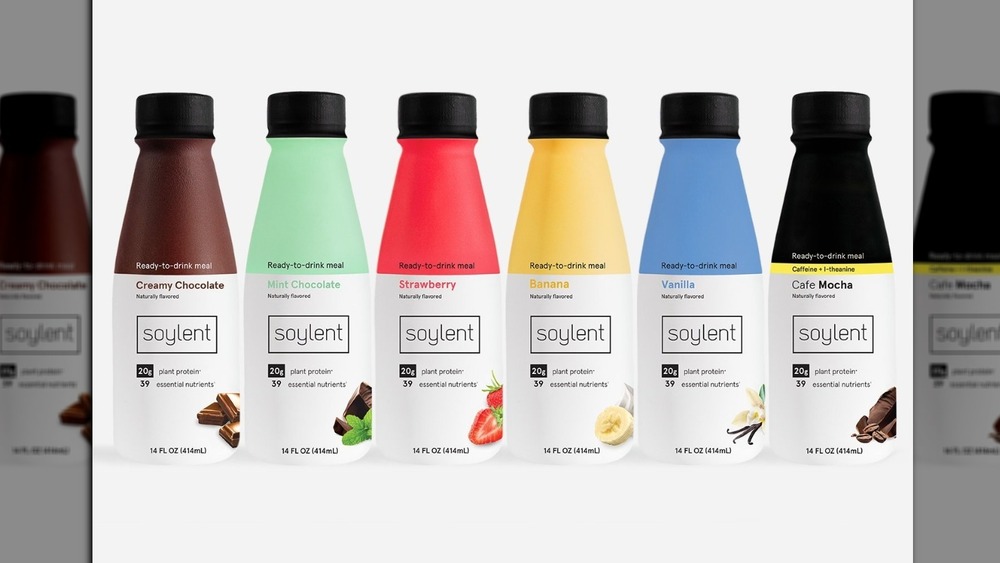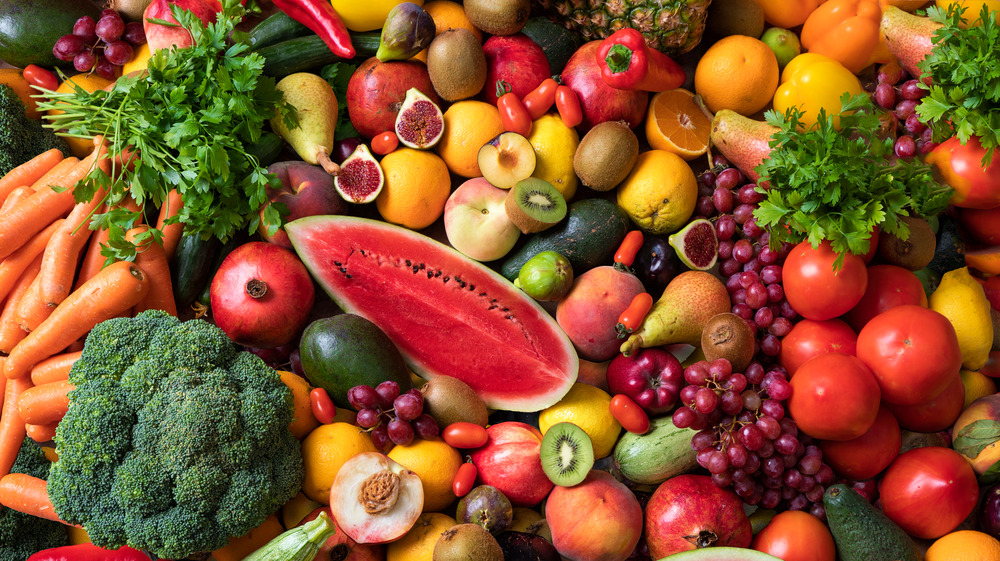Why Some Nutritionists Don't Recommend Soylent Meal Replacement Drinks
First of all, we'd like to applaud the new wave of vegetarian and vegan products that have been hitting the market this year. The rise in people choosing to focus on their health or the environment has been leading to a true variety of food products to fit all diets and lifestyles, including mainstream vegan offerings like Starbucks' recent Oat Milk brews and even Halal Guys' vegan platter. One company embracing the plant-based nutrition movement is the meal-replacement drink called Soylent.
Born from the mind of engineer Rob Rhinehart, this entrepreneurial spirit felt like food was a necessary inconvenience. "Food was such a large burden. It was also the time and the hassle," Rhinehart said (via The New York Times). In a move that would likely make professional chefs cringe, Rhinehart began thinking about food as its component parts. "You need amino acids and lipids, not milk itself," he said. "You need carbohydrates, not bread." He realized that there was little nutritional value to texture, and that he could add many of the nutritional basics into a shake, thus the birth of Soylent meal replacement drinks.
Overall, Soylent does have some great and healthy components, like plentiful plant-based protein.
Some nutritionists think Soylent does things backwards
But there's a reason we traditionally eat a variety of foods — a few reasons actually. Soylent originally described themselves as a food replacement, but quickly walked back their claims in 2016, sharing via The Atlantic, "While not intended to replace every meal, Soylent can replace any meal." While acknowledging that the drink is likely far healthier than the diet of many Americans today, nutritionists have been disappointed in the creation process of this drink itself.
Where traditional foods and supplements are created for flavor and effect and then sent for nutritional testing, Soylent was designed specifically to look good on these tests not necessarily tastes. Many feel this is doing things backwards. Another reason some nutritionists have struggled is because, while more planet-friendly, Soylent is neither Kosher nor organic — a hindrance to some (via How Stuff Works). Nutritionists also note that eating helps give our body feedback about fullness and affects our mental health as well. Eliminating food for drinks could be problematic.
Instead, enjoy these drinks for what they are — an occasional nutritious option if you are forced to skip a regular meal. "If someone wants to supplement their diet, maybe skip a meal and use [Soylent] instead. That could potentially be OK if it's under the supervision of a dietitian," Dr. Joy Dubost told How Stuff Works.

